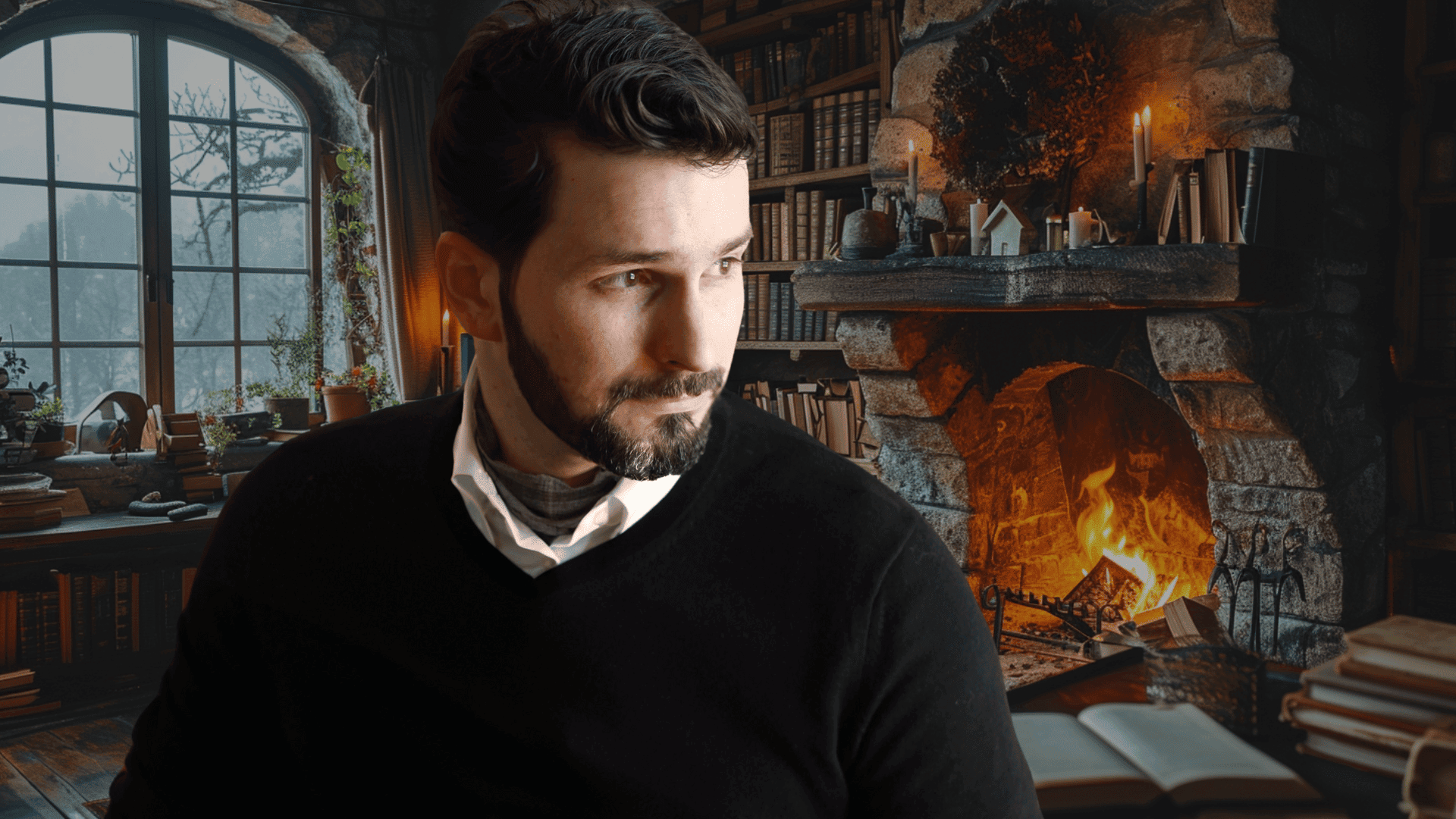The goal of fiction is to tell a compelling story.
Our goal as Catholics is to help others come to know Christ in some way.
And there are a billion ways to help someone ‘know Christ’. Christ is Truth itself. He is Beauty. He is Goodness. Any one of those can be the driving inspiration behind your story.
Christ is also the suffering servant abandoned by God on a cross. He is the weeping migrant torn from a warm bed into a midnight warzone. He is the dried and exhausted traveler in the desert, with no angel in sight, and only stones and steeples and kind, grinning demons.
All of creations groans in labor pains, slowly giving birth to the glory of God through every life, every moment, every consciousness.
All of it is replete with story potential.
Your characters don’t have to convert to card-carrying members of St Agatha’s parish by the end.
They don’t have to end up on their knees in a confessional.
They don’t have to even know anything about Catholicism, or even have Christ mentioned.
It’s often said that you have to write with the end in mind. I know I do.
Knowing the end can’t take away from the grit and grind of earning that ending.
Every quest stands on the edge of a knife. Stray but a little and it will fail, to the ruin of all. Yet hope remains…
Our job is to work through that with reverence and attention.
How real you get depends on your reader. Depends on the story you want to tell.
And it does depend if your reader will want to follow you there.
Think of some of your favorite uplifting films and books. Some of mine are The Chronicles of Narnia, Mission Impossible 3, or Gran Hotel. In none of these is there any explicit reference to the Faith.
And yet, each one of them is born from the virtues and values that centuries of Christian appreciation have brought the world.
“The novelist is required to create the illusion of a whole world with believable people in it, and the chief difference between the novelist who is an orthodox Christian and the novelist who is merely a naturalist is that the Christian novelist lives in a larger universe. He believes that the natural world contains the supernatural. And this doesn’t mean that his obligation to portray the natural is less; it means it is greater.” Flannery O’Connor, ‘Catholic Novelists and Their Readers’
- Through Narnia, we come to appreciate and love beauty, mystery, magic, a sense that there is more to the world than our eyes and ears can tells us. We are introduced to the majesty of the spiritual and the cancerous presence of evil.
- Mission Impossible 3 is premised on the capture and recovery of Ethan Hunt’s wife. The story is perhaps built on the back of the Song of Songs, the idea that a husband and wife share a unique, incredible bond made crucial by its very exclusivity, and the power that comes from desiring the good of the other no matter the sacrifice.
- Gran Hotel is replete with intrigue and romance, perhaps a Spanish version of Downton Abbey. It has some beautiful inclusions of the virtue of friendship, dedication and loyalty, circling the understanding that an authentic romance needs to be free and ordered to the good of the other.
All three are tales told by a non-religious audience.
And yet all three are sources of spiritual inspiration – after being a gripping story. They teach us something about the true, or the good, or the beautiful, sometimes all three.
By showing the desirability of a virtue, or a way of life, we are helping the reader get a little closer to Christ.
By the way that we explore a theme, we can change how someone feels about an issue.
“In today’s secular culture, any reference to a divine intervention in human affairs is problematic. Readers do not want a homily, let alone a work of Catholic apologetics.” Piers Paul Read, ‘Dangers to the Soul’
“Many of the great writers of Catholic fiction neither used Catholic characters nor told of overtly Catholic events—they “simply” wrote about life in all its reality.” Michelle Tholen ‘What’s Wrong with Contemporary Catholic Fiction?’, ‘Dangers to the Soul’
There are also plenty of stories that take other, darker routes, that can be just as important.
They’re not for everyone. They’re not meant to be. They are cautionary tales, and they engage with a reality that is terrible and normal to some.
(Spoilers)
- ‘Fight Club’ is a raw, harsh look at how masculinity can unroot itself from the feminine, and find identity in taking masculine traits to extremes. To lose all nobility and good, and see power and pleasure as goals. By the end, the characters see a glimmer of redemption by utterly shattering themselves on the ruins of their lives, and through contact with another person. They are saved from the abyss through communion.
- ‘Game of Thrones’ doesn’t fear to head right down into the darkest areas of the human experience, and explore how sin butts up against sin. Definitely with a titillating and voyeristic approach. But the greater point of this rooting around in Sodom is to show how incapable everyone is to deal with the greater reality of an undead invasion. Like modern materialists, we are unprepared to deal with angelic reality, whether we like it or not. It is a stern, dramatic message for us in our own lives, and very applicable.
- ‘Black Swan’ follows a similar story to ‘Fight Club,’ but I don’t see it ending with redemption. It follows the pathological need for a terribly repressed girl to embrace all unexplored aspects of her nature. At the end, she throws herself completely into a liturgical acting out of her inner fears, and puts the story of Swan Lake higher than real wisdom. It destroys her, and she accepts that. She celebrates that.
This is how a mystic strives to see stories.
Almost all deeply-thought tales field germs of truth, either to celebrate or caution.
If we are adding our tales to an audience seasoned with the extremes of the human experience, we should do our best to ‘smell of the sheep’ too.
Tolkien wrote the terrible tale of Turin Turambar, as a mirror opposite of Aragorn. He wanted to explore an epic character who constantly chose the wrong reaction to his karma, his fate. He constantly abandons his duty, abandons his identity, abandons his promises. Everything collapses around him. And he continues to fail all the way to the grisly, heart-wrenching ending.
The story was meant to be appreciated on many levels. One was to be the counter-weight to Aragorn’s success as a man, friend, and king. He knew he stemmed from terrible, catastrophic failure, and overcame it.
But Tolkien also intended Turin’s life to extend beyond the grave. Turin’s failure in life meant nothing unless it was repented and resolved in the next life.
Tolkien needed to explore how terrible lives lived in failure and fear aren’t the end. They can make everything worse, and rack up an awful debt. But the individual is still made in the image of God, and doesn’t dissolve with death.
The story continues. There is always hope. And sometimes, a horrible story can provide the catharsis and hope that a reader needs to hold on, just for one more day.
PreviousNext



0 Comments